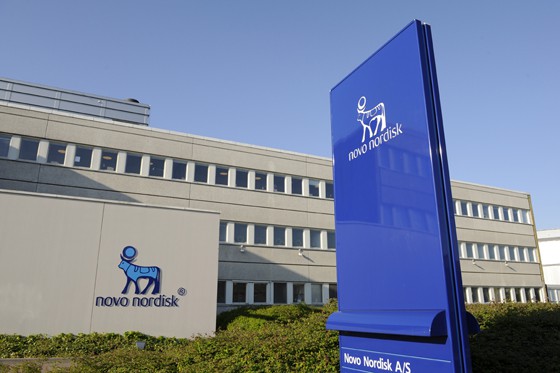
Novo Nordisk will file its oral formulation of diabetes drug semaglutide in the US within the next two months, and will spend a priority review voucher to shorten the time to a decision.
The Denmark-headquartered drugmaker revealed its plans for the much-anticipated new drug in its fourth-quarter results statement, which also showed how important semaglutide in its current once-weekly injectable format – under the brand name Ozempic – is to its diabetes franchise.
From a standing start after its approval last February, Ozempic grew into a 1.8bn krone ($277m) product by the end of the year, and that helped Novo’s total GLP-1 sales grow by 13% in the year, despite tough competition from class rivals and particularly Eli Lilly’s once-weekly Trulicity (dulaglutide) which was first to market.
Ozempic still has a long way to go before it catches Trulicity however, which is romping away in the diabetes market thanks in part to new cardiovascular outcomes data with sales of more than $2.2bn in the first nine months of 2018. Novo is claiming that Ozempic’s launch has “stabilised” its GLP-1 market share at around 26%.
Despite that competition Novo’s older GLP-1 drug Victoza (liraglutide) – given as a daily injection – held up remarkably well in 2018, with sales up 5% to 24.3bn krone, while its Saxenda formulation of liraglutide for obesity contributed another 3.9bn kroner, up more than 50%.
Oral semaglutide is seen as critical to Novo’s hopes of maintaining market share in the GLP-1 agonist class, and it is a measure of its importance that the drugmaker acquired the priority review voucher – which typically sell in the $100m to $200m range – to shorten the FDA’s review time to six months. That ate into fourth-quarter profits, which missed analyst expectations. In Europe the company is predicting a filing for the drug in the first half of 2019.
Group sales barely moved in 2018 compared to the prior year, coming in at 112bn krone, with the GLP-1 portfolio’s growth offsetting declines in insulin products. The latter are already under pressure on pricing and increased competition and are in the sights of US lawmakers and the FDA who want to see faster biosimilar competition to these products.
Long-acting insulin sales shrank 6% to 20.8bn krone overall, mainly due to a sharp decline in top-seller Levemir (insulin detemir) which fell 21%, although there was a 10% gain for Tresiba (insulin degludec) and a sharp increase for Xultophy, a combination insulin/GLP-1 shot which more than doubled to 1.6bn krone.

New fast-acting mealtime insulin Fiasp (insulin aspart), launched in its first markets in 2017 and in the US a year ago, contributed 590m krone and helped keep Novo’s total insulin sales decline at just 5%. There’s more pain to come however with US pricing pressure and changes to Medicare Part D coverage is expected to trim 2bn krone off the firm’s 2019 sales.
Novo’s CEO Lars Fruergaard Jørgensen said that 2018 was a “year of change” for the company, but also one of “significant progress” as its GLP-1 programmes delivered results.




